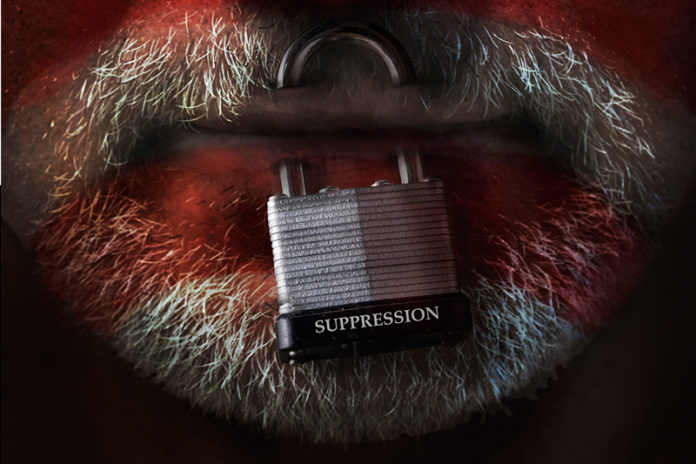In recent days, some of the nation’s most powerful corporations have engaged in a concerted effort, at the behest of a major political party, to limit the speech of millions of Americans who engaged in wrongthink. First, Twitter permanently banned the sitting president. As is its right. And when millions of his fans left and bolstered Parler, a different platform, Apple, Google and Amazon went ahead and shut it down as well.
But if you say that targeted deplatforming, though not Stalinist, is troubling, the same people who want to compel everyone to buy state-mandated health insurance, who want to dictate how corporations compensate their employees, who want to force nuns to buy abortifacients and who want to destroy the lives of bakers and florists who run businesses according to long-held religious beliefs will vigorously defend the value of free-association rights that allow corporations to act this way. So I’m pretty skeptical that most of these people are genuine champions of individual market choices, and aren’t just super excited about silencing people.
The violent rioting at Capitol Hill last Wednesday by a few hundred seditious MAGA yahoos spurred on by the president — sometimes referred to as a “coup,” as if the Viking Helmet Dude had nearly grabbed dictatorial powers — has given lots of people the pretext to embrace censorship, as they eagerly, and quite cynically, assign collective guilt.
Is “censorship” the right word? I’m not sure. I am sure that the inclination to shut people up is an illiberal one. Just as the defense of speech is a liberal virtue, whether the right is codified in law or not. Once dominant corporate and cultural elites — in this case, a group of Big Tech CEOs and employees who are highly susceptible to political pressure — collude to decide how people are allowed to interact, they engage, functionally, in censorship. And once we normalize the idea that corporations have an extrajudicial duty to limit speech in the name of “safety” — a rationalization as old as censorship itself — the spirit of the First Amendment is being corroded. The real thing is soon to follow.
Twitter claims that it is merely banning “incitement,” by which it means conspiratorial contentions about the 2020 election being stolen. This, of course, is a new standard, since well-known personalities across Twitter have spread similar conspiracies about the 2016 election — not to mention downplaying the murder, arson and billions of dollars of damage caused by leftist rioters last summer.
Perhaps we could take Twitter’s claim that it is upholding the sanctity of democracy more seriously if it didn’t host Chinese Communist officials who treat slave ownership as a social good or anti-Semitic Iranian officials who regularly use exterminationist rhetoric. I’d rather we just hear everyone, and mock, stigmatize, debunk and undermine bad actors.
Let’s not forget that the liberal conceptions of hate speech and incitement are quite expansive. “White supremacists,” as you’ve surely noticed, lurk behind every tax cut. How long before tech companies start infringing on other political speech that upsets liberals?
Perhaps Amazon has a point about Parler and its lack of moderation. Pointing to a few threatening messages on that platform, though, isn’t wholly convincing, considering one could do the same on Twitter, where arbitrarily enforced rules mean banning conservatives who think the election is stolen but not New York Times columnists who argue that rioting isn’t violence.
This is the part of the column where I concede that I have no solution. Overturning Section 230 would do nothing to foster more speech or compel platforms to act in an unbiased manner. What it would do is empower government, in effect, to make moderation decisions.
So, I remain one of those naive people who still believes that conservatives need to build their own news organizations and platforms. But if Amazon and Google — companies, incidentally, that gained their market share and power acting as disinterested corporate entities — now do the bidding of one political party and dictate speech codes … well, that’s not going to be easy.
Then again, treating liability protections for social media platforms with more reverence than the underlying values of free expression is its own shortsightedness. It’s true that the First Amendment doesn’t guarantee anyone a Twitter account. Everyone is aware, I assume, that Section 230 isn’t in the Constitution, either?
Indeed, the marketplace can act in ways that are antithetical to the ideals of a nation.
Much of this anti-speech crusade began in 2016, when the media began blaming “fake news” and social media ads — not their own obsession — for Trump’s victory. Since then, for many, the mission has been to constrict discourse and to inhibit interactions among MAGA supporters by shaming and pressuring corporations that host them. The same people now cheer on what can be described as plutocratic collusion. That doesn’t bode well for long-term health of the First Amendment.






























